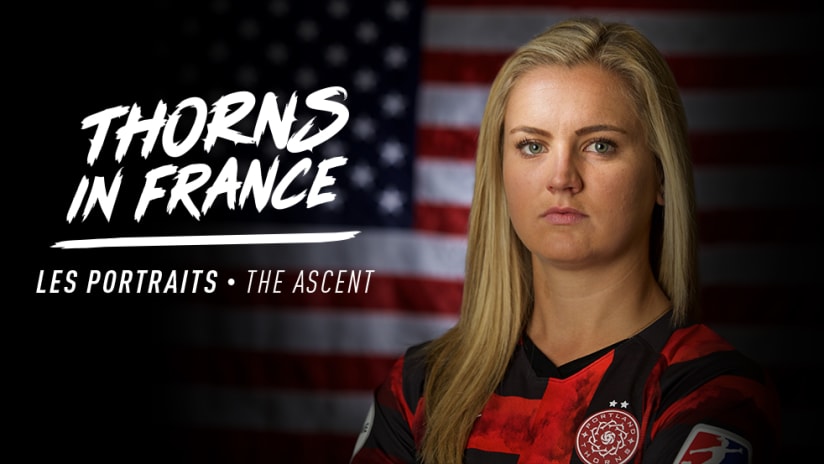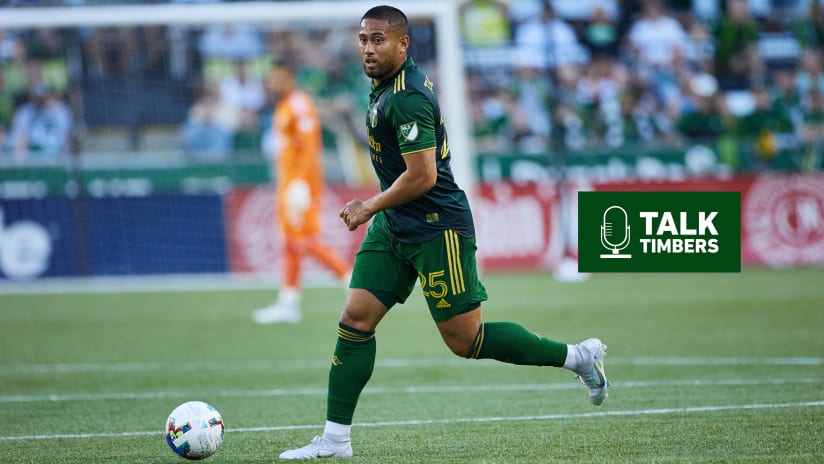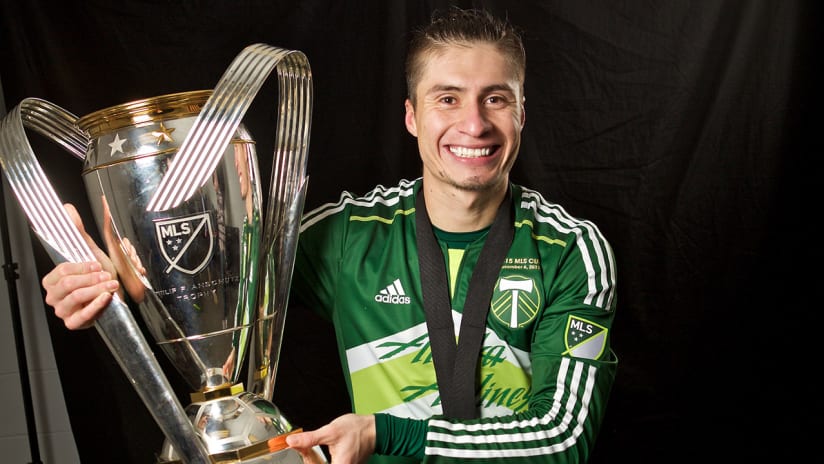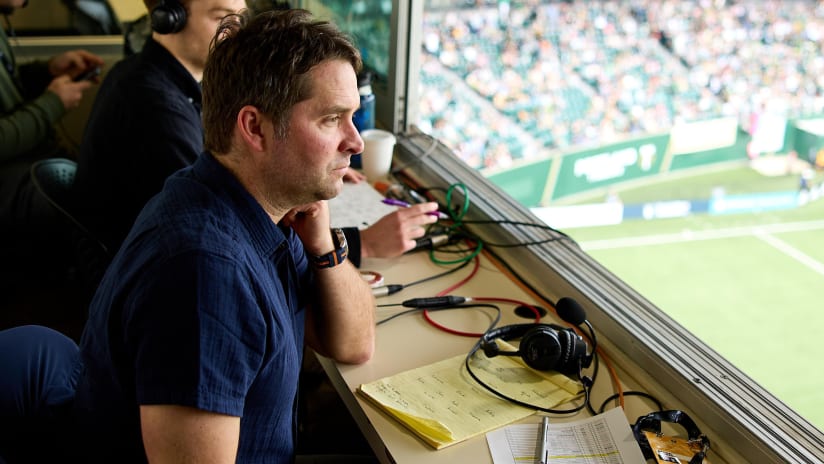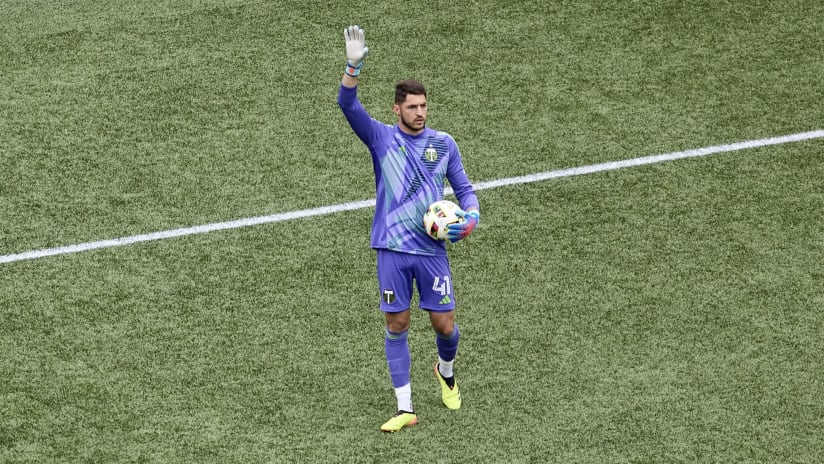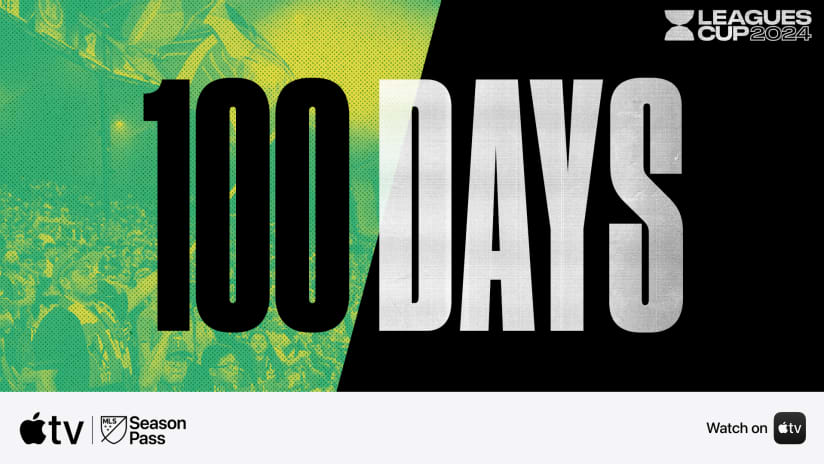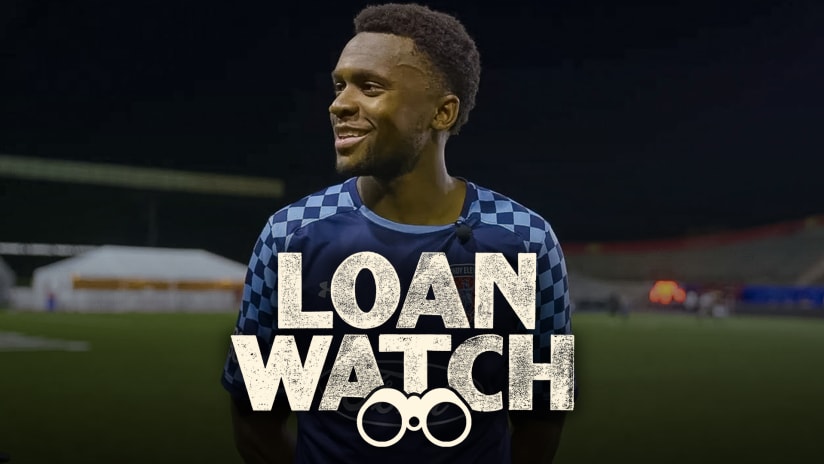PORTLAND, Ore. – Lindsey Horan can remember the day she fell in love with soccer; at least, the day she fell in love to the degree she is, now. It was at the point when someone distinguished the pure, innocent infatuation of her childhood self with something more passionate. It was the point when she was told a game could become a life.
“My first realization that I could turn pro was probably 14 or 15 (years old),” she recalled last month, while exchanging stories with a Portland Thorns FC teammate, Ellie Carpenter. “I had a conversation with my (Colorado Rush) coach, Tim Schulz. He put out the idea to our team: ‘This is a possibility. You can go, play overseas, turn pro whenever you want.’
“I had a conversation with him maybe a few weeks after. I was like, ‘I want to be that player.’”
Over the last 10 years, Horan has lived out those six words, going overseas and back to become the player Schulz foresaw. She made herself into a National Women’s Soccer League Most Valuable Player, a regular starter on her national team and, when she takes the field at some point this month in France, a player who’s appeared at a World Cup.
She’s 25, now: neither so far from her former self to have forgotten her goals, nor so close as to lose perspective on her passion.
“I had this crazy dream when it first was said to me by my coach,” she’d said, weeks before her conversation with Carpenter. “And I think to this day, I've been in love with the game.”
That love has driven Horan’s ascent. She is now one of U.S. soccer’s best talents.
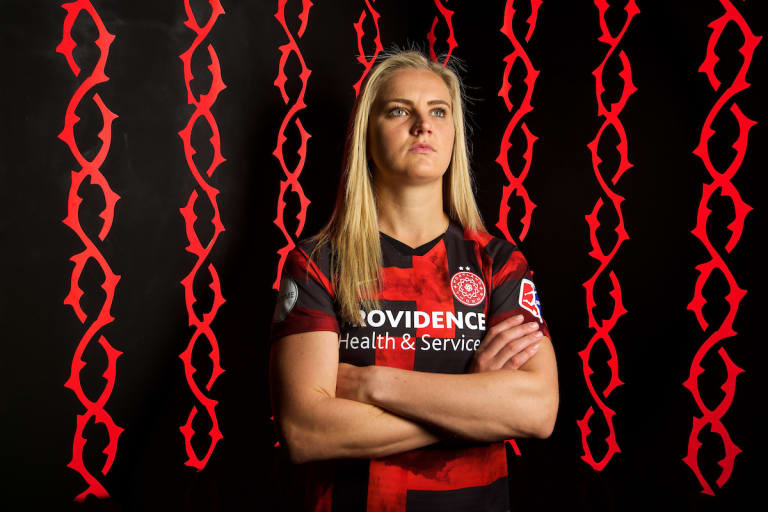
Image: Craig Mitchelldyer / Thorns FC
She plays the game like nobody since Michelle Akers, and in the nearly two decades since the U.S.’ most complete player hung up their boots, there hasn’t been a better all-around talent. But whereas once Horan profiled as a striking prodigy, coaches from the U.S.’ Jill Ellis to Portland’s Mark Parsons have broken her out from that limiting role. In their evaluations, there’s a recognition: A player like Horan needs to be on the ball as much as possible.
She changed from a nine’s position to a 10 – somebody who pulls her team’s strings – and that was still too limiting. Now, she’s an eight – a central figure who, for club and country, has license to drop deep to pick up the ball or trail attacks and become a penalty-box force. Her skill on the ball is exceeded by few in her national team, while her power in possession may be unparalleled. With range and touch, she can go from regista to trequartistain one movement, ultimately producing Lampardian levelsof goals. You don’t become that kind of all-around force without having a deep and profound love of your sport.
Consider the list of entities that have, over the last decade, wanted to be a part of that love. In terms of clubs and teams, it’s a who’s who of international women’s soccer prominence.
Within years of Rush’s president, Schulz, outlining a vision for her future, Horan was trying out at Olympique Lyonnais, the most successful women’s soccer team in the world. She demurred from the opportunity, eventually committing to the most decorated team in women’s college soccer history, the University of North Carolina, before changing course. In 2012, she leapt to France and joined an emerging Division Féminine power, Paris Saint-Germain.
Before ending her time in abroad, Horan was breaking into the most famous women’s sports team in the world, the United States national team. With her move back to the States, Horan joined Portland Thorns FC, one of the most celebrated clubs in the women’s game. Now, just touching on the prime of her career, Horan’s story already contains so many mosts.
Over the last two years, Horan’s been able to shed light on that ascent, opening up about the sacrifices she had to make at such a young age as well as the expectations she had to fight during her first years as a pro. She’s become comfortable telling her own story, undoubtedly part of the reason why it has become a modern-day soccer fable.
Forsaking the college route. Leaving home as a teen, to live in a new country. No other top prospect has followed her yet, but when players like fellow Colorado prospect Mallory Pugh are making their collegiate decisions, or when discussions around a talent like Canadian midfielder Jessie Fleming speculate about her future, there’s now the possibility of going the Horan route.
“I took that huge risk,” she remembers, “that huge jump, and it was like, ‘I want to risk everything to fully attain my goal. I want to be a professional soccer player. I want to be on the national team someday,’ but I didn't know where that would all fall into place. I was like, ‘I'm going to work day in, day out and see where this game takes me.’”
Recognizing the magnitude of those risks and jumps are perspectives Horan couldn’t speak to from France, or even when she initially came back from Paris just over three years ago. Perhaps she could have played lip service to the ideas, but until she emerged from her self-inflicted gauntlet, they’d be empty words. Leaving Golden, Colorado, for Paris was supposed to be a challenge. It wasn’t until Horan was much older that she could fully comprehend her obstacles.
Be it in national team videos, Players Tribune pieces, apparel advertisements or profiles on her club team’s web site, Horan’s become the driving force behind her narrative – appropriate, given nobody else knows what she’s gone through. That she’s become comfortable using her voice, evoking phrases like “fewer stereotypes, more goals,” reflects an increased comfort she has with herself, something that dovetails with her progress on the field.
“Mentality is such a huge component of my game,” she admits. “I have a lot of tools in my game, but none of those can be pulled off if I don't bring that confidence that I've been gaining so much through the past two years, especially here at Portland, and bringing it into the national team.”
That mentality wasn’t at the same level when she went to France, even though she scored 35 goals over her first two European seasons. By the end of her second PSG campaign, she was getting her first looks in the U.S. squad, but the mindset still wasn’t there. It wasn’t at the same level when those first looks became regular time two years later, in the wake of the 2015 World Cup, and even the next summer, when she made the squad for her first major tournament, Horan was still having trouble asserting herself.
“Looking back at the last Olympics, I wasn't a starter there,” she remembers about the 2016 summer games in Rio de Janiero. “I wasn't playing a lot, and I had this feeling inside my stomach and my heart where I wanted to do more.”
It’s a feeling that persists with Horan to this day, albeit in more managed way. She’s learning how contain her worst instincts, but they’ll probably never fully go away. The main conflict throughout her career is always going to be how she perceives herself, and in her expectations, she’s always going be the person who might separate herself from her love.
“I was so mad at myself for not taking that chance before the Olympics,” she says, “to really show my confidence and show who I was, show that I could be this impactful player, and nothing was going to get in the way.”
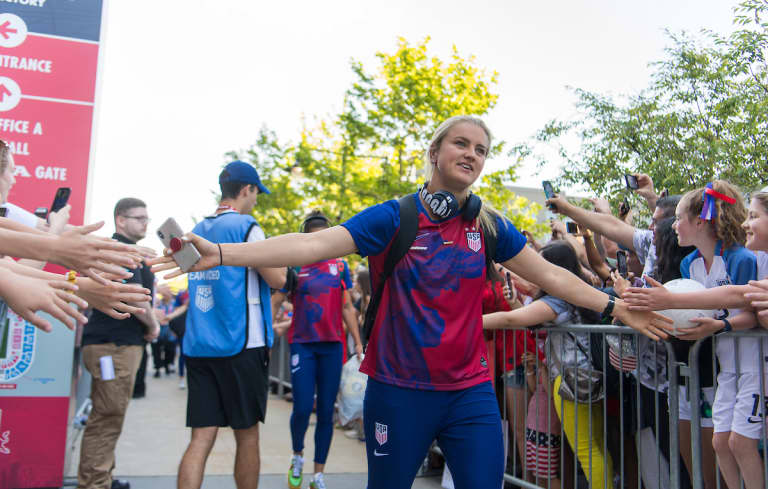
Image: ISI Photo
For us on the periphery, this may be the telling part of Horan’s ascent. In women’s soccer, in this part of the world, her path is unique, but she’s not the only athlete that’s had to navigate high expectations to become a professional. That’s a given when it comes to the routes basketball, American football players and Olympians have to take to their tops.
What makes Horan’s rise distinct from theirs, though, is her willingness to let us in. With her, there’s a feeling that she’s not only grown before our eyes. There’s also the feeling that we’ve been allowed to grow with her. We’ve seen our youths, or our futures, play out through her. She’s let us she when it hurt. Through her successes and her struggles, we’re invested now.
Consider another place, below, where she talks about mentality. She does so in a general way, yet without offering prescriptions. She internalizes it to keep from being preachy, but she empathizes, deviating from her course to do so. She can talk broadly about the idea of athletes facing challenges, but her solutions are her own, and in recognizing that those solutions have come recently, she’s also acknowledging her struggles:
“The one thing that can possibly get in the way of an athlete is your mind. That's been so huge for me in the past two years. And I've proven that I can battle through those struggles, and now mistakes or bad games and all those things don't really get in the way … it's a very difficult thing in an athlete's journey and in their career.
“Everyone goes through that. Everyone does. Everyone has a coach they don't like. Everyone has a terrible mistake in a game, or a loss in the game, or something like that. And it's tough to keep a calm presence and know that you're going to be okay and you can keep moving on and getting better and better.”
Horan admits she doesn’t always walk that walk. “I'm so hard on myself,” she admits, saying, “when I feel like I have bad games, I feel like they're the lowest of lows.” She overanalyzes in the moment, needs to remind herself it’s okay if she’s not doing everything all at once.
Strangely, she also ends up holding her best moments against her, too. She uses a stretch of games during the 2018 season as an example, where she scored eight times in nine games during the NWSL campaign.
“I had to get to a point where I was just like, `Lindsay, stop thinking about scoring goals,’” she remembers. “I was on this scoring streak, and it wasn't every single game, (but) I (would) want to score goals. I just wanted to be the best player I could for my team.
“But there was a game where I didn't score, and I was just like, ‘Oh my god, I had a terrible game.’ And I looked back at it, I was like, ‘No, I didn't. I just didn't score,’ and I can't expect that of myself. That's where I started getting to that point where I was just like, ‘You need to do what the game is asking of you, and whatever, Lindsey, you can pull out in this game, whatever it needs of you.’”
It’s another place where the journey makes the present more important, as well as her willingness to bring us along. The solutions Horan’s come up with aren’t unique, but the path she’s taken to them is unique to her. She’s focusing on the things she can control, a mantra she shares with other athletes, but one that feels more profound for expectations she’s had of herself.
How do you maintain perspective when, at 16, you’re training with Lyon; at around the same time, you’re headed for North Carolina; a year later, you change course for Paris; and at 22, you’re chastising yourself for not being a bigger Olympic star?
“I started getting to the point where the one thing that you can absolutely control is how hard you work during a game and your effort and your mentality,” she explains. “And I said, ‘Okay, so one thing I can control, everything else is going to fall into place after, hopefully.’ So, I would go into a game and I would say to myself, ‘Okay, you're going to work your 'you know what' off, and you're going to be the hardest working player out there.’
“Consistently telling myself that. It was just that was the one thing I could absolutely control.”
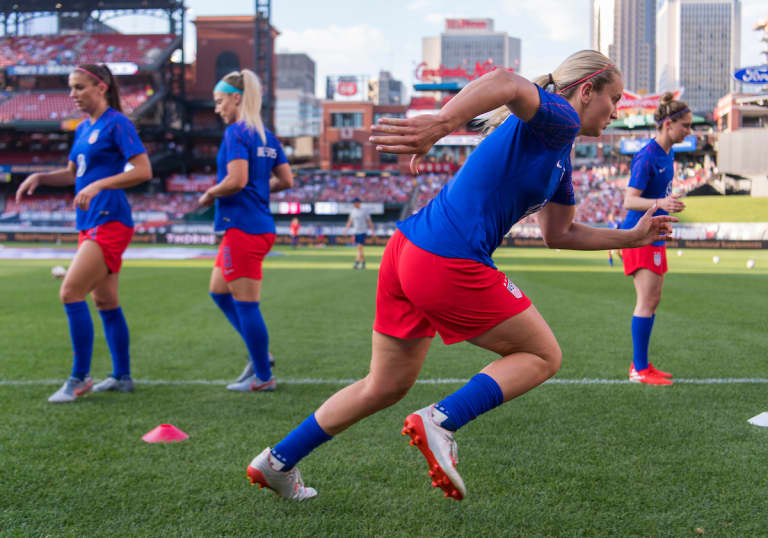
Image: ISI Photo
The returns have spoken for themselves. Over three-plus years in Portland, she’s scored 25 times, all while asserting her presence in the U.S. national team. She’s a different player now, having been converted from forward to a deeper, central role in midfield. For people who saw her first successes with Paris Saint-Germain, Horan’s current game might be unrecognizable.
“It’s kind of crazy to look back at me when I first came here, and when I first was consistently in with the national team,” she admits. “I'm just a completely different player, and there's so many things that contribute to that …
“Importantly, I've found that belief in myself, and a lot of people helped me to get to that point. Playing at this level. Knowing that I can play at this level. Knowing I can be the best Lindsey at this level, with Portland and with the national team.”
Knowing, too, that her love of the sport has paid off. Horan remembers, “probably four times a day kicking the ball against my wall on my front yard, waking up early to go to sessions, skipping school to come back and watch Champions League. That's the little girl I was.” She also remembers her mother coaching her first team, the Great White Sharks, and the thousands of hours she amassed pushing herself with Schultz and Rush.
She also remembers the doubts: the initial nights in France, sleeping on mattresses without linens; having to go to the local McDonald’s for an internet connection to Skype her mom. She remembers missing out on the U-20 World Cup in 2014, recovering from knee surgery after being the team’s best player in qualifying.
She remembers the times when her love almost became a job. She remembers when the passion almost ran out.
“There have been times where I feel like I'm falling out of love, and I get back to it,” she concedes. “But the thing that's kept me going this whole time, the thing that's gotten me out of these rough patches or lack of confidence or coaches or mistakes and all these things was, I love this game and that's why I'm playing this sport. And nothing else really matters but me and the ball, and then me and my team and what we're going to do.
“Ultimately, when you love something so much, you want that to succeed so much.”
She has a Most Valuable Player award, now. She won one in the 2017 NWSL Championship Game, too. The first year she was in Portland, the Thorns won an NWSL Shield, while at the end of her last two club seasons, she’s made one of her league’s Best XI squads.
Even then, she sees room for her love to achieve more.
“I was really happy with myself and I celebrated that with my family and close friends,” she says, of the strides she made in 2018, “but we didn't win the [league] championship, and that's what meant the most to me. So, it was very hard to celebrate that.
“I want more,” she says. “I want our team to win again. I want to go up and win this World Cup and be the best player I can for my team.”
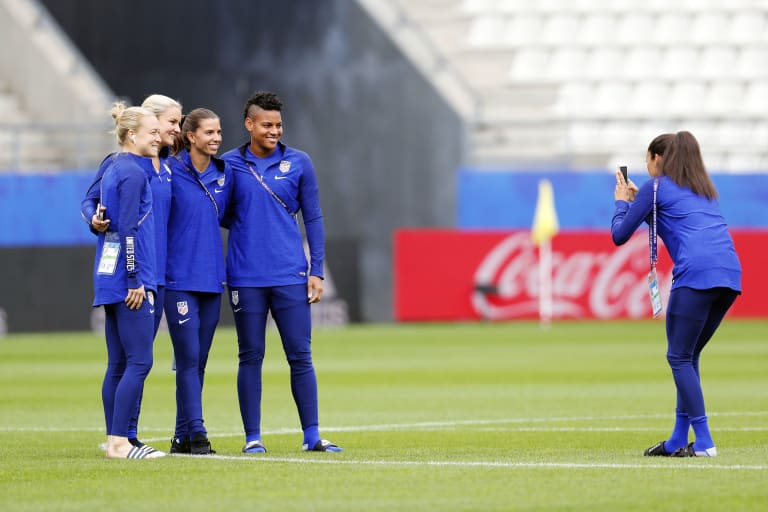
Image: USA Today Sports Images
That she can speak in such lofty terms reflects how far she’s come. She’s no longer worried about whether her choices will pay off. They already have. Now, she can worry about the final parts.
“My gosh, [my career] has taken me to the best place in the world to play for a club,” she says. “I've never been so happy at a club and in a city. And then playing for the national team and being consistently in the national team? I think it's amazing. It's a great feeling knowing that all of these sacrifices paid off.”
It’s not lost on her that all those sacrifices have brought her back to France this summer, either, and in terms of the symbolism of this summer’s event, there’s something to be said for Horan returning to her second home. When she arrived in 2012, she was a teenager taking a plunge, one who left four years later to take her career to the next level.
Now, so much closer to her fully realized self, she sees it as a “cool thing that anyone could say, ‘I started there. That’s where my career started, and four or five years later, that’s where I’m going to be competing in a huge tournament.’ It’s a very cool thing.”
But it’s also something she can’t control, and if the ascent she’s had over the last decade has taught her anything, it’s that dwelling on things beyond her reach risks complicating her love. The closer she stays to the things that, to her, matter most, the more she believes Lindsey can bring to the field.
“I'm thankful that I'm kind of going back to my second home,” she admits, “but yeah, I don't necessarily like to look at it that way, because I don't want to feel that little bit of added pressure. So, it’s kind of just like, I'm there for the World Cup, and I'm there to win with my team.”
She’s there for the reasons she wants: to fulfill the dreams she put into motion 10 years ago; to stay true to the person she’s become. Over her last decade in the game, those goals have become inseparable, each serving an idea that’s become her guiding principle.
“Any time you like lose love (for the game), it's like (the game) is not as meaningful to you,” she says. To her, through all the intrigue of a career’s unique course, that love is her ascent’s most important part.
“It's stayed so meaningful to me, because I haven't let anyone take away that love for the game. That’s so important for any little girl, little boy to know: When they love something to keep that love, and not let anyone take it away from them.”

